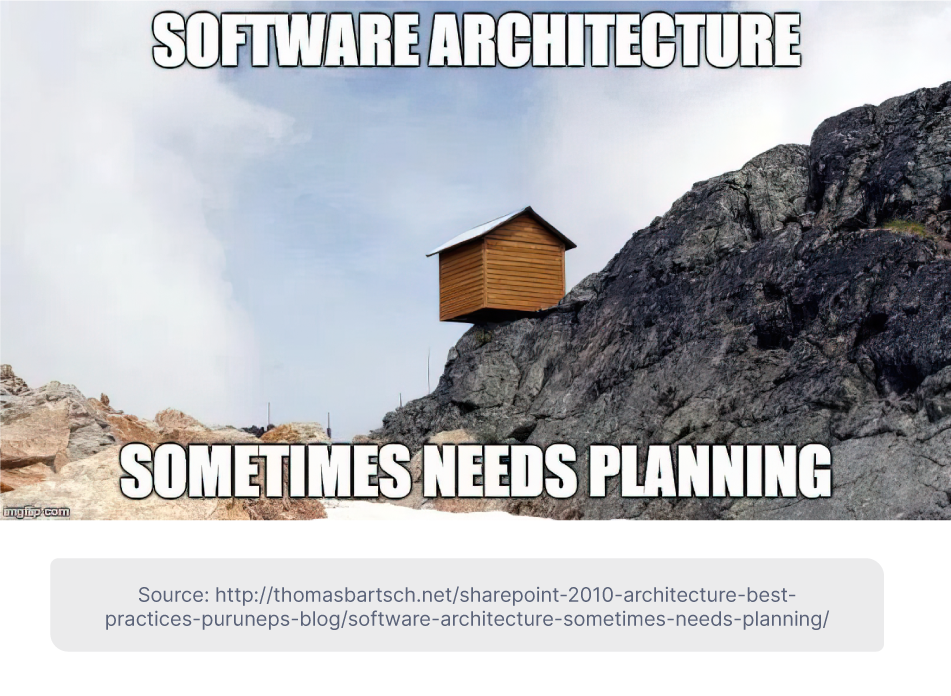5 Essential Skills Every Software Architect Should Have

It’s difficult to pin down an exact definition of software architecture, but it is fundamentally concerned with the design and structure of complex IT systems. Similar to building construction, software architecture provides a blueprint for how components will come together in a robust system that meets the relevant business requirements. Without this high-level planning, your system build will likely be messy, difficult to maintain and at greater risk of failure in the future.

So with this in mind it’s pretty clear why software architects are important. According to Zippia, there are around 180,000 software architects currently employed in the US, with an average age of 39.5 and an average starting salary of around $85,000. Indeed ranked software architect as the ‘best job of 2020’ and it remains among the most sought after tech positions. But what does a software architect do, and how do you become one?
What does a software architect do?
A software architect’s job description is often broad and demanding. It involves setting out the design, technical standards and scope of a particular IT project. It means making high-level decisions on what tools, platforms and processes the development team will use to build an application. It also means ensuring the IT system aligns with the company’s needs and objectives.
A software architect, therefore, needs to have a mix of technical and people skills. Software architects work closely with developer teams and must have good command of the technology being used, but they will also be liaising directly with clients, project managers and other stakeholders in the organization. It’s vital they are able to speak to both groups effectively. For this reason, while many software architects begin as developers, or at least have a strong background in tech, not all technically-gifted developers or engineers will make good architects.
-png.png)
Here are some of the key skills a good software architect should have:
- Broad technical knowledge: It goes without saying that a good software architect needs to have extensive knowledge of different programming languages and frameworks. They also need to understand the pros and cons of different architecture patterns and how they fit with an organization’s unique requirements, resources and capabilities. Another essential technical skill is system diagramming, including the use of Unified Modeling Language (UML) as a standardized approach to visualizing system design.
- Problem-Solving: A software architect plays a pivotal role at the very start of a software development project, when the basic structures and standards are laid out. This is when they must figure out the optimal architectural solutions that meet a business’s requirements (functionality, performance, scalability), while taking into account all the relevant constraints (time, budget, existing infrastructure). A software architect should therefore be adept at breaking down complex problems and using simple concepts to find optimal solutions.
-png.png)
- Communication: Strong communication skills are important for most jobs, but especially so when you’re the person that needs to articulate a vision to diverse stakeholders. A software architect should be able to explain a plan clearly in a way that developers and non-technical managers or clients will understand and support. Negotiation skills are also useful as the software architect will inevitably have to deal with trade-offs, whether down to technological constraints or to the conflicting priorities of stakeholders.
- Leadership: Software architects configure the design principles and patterns that will guide developers as they get to work on an IT system. Strong leadership skills are essential to be able to coordinate and support teams of developers throughout the process. In larger organizations, this may mean managing multiple teams (some may be remote) with different skills and priorities, so conflict resolution will be a part of the job. Motivation is another key factor, so the ability to secure developer buy-in is an important attribute.
- Visionary: One of the most important skills that separate a software architect from a senior developer or engineer is the ability to see the big picture. The architect shouldn’t get bogged down in the technical details and specific tasks of a project - they need to stay focused on the overall system and how each component contributes to the end goal. A good architect should also be forward-looking and design a system that can be easily adapted and scaled as the business evolves.
Becoming a software architect
As we can see, becoming a successful software architect requires developing a broad skill-set. It’s crucial to learn full-stack programming skills, but this won’t be enough without the softer, people-oriented skills. A strong character is also essential, as this is a job that carries a great deal of responsibility. After all, architectural mistakes at the start of the software development life cycle can be the most difficult and costly to fix later on.
If your business is looking for a top-quality software architect, be sure to seek someone with a rounded set of skills. And don’t forget to get in touch with us at Jobsity to find out how we can help your organization expand its IT team with the top tech talent from Latin America.
--
If you want to stay up to date with all the new content we publish on our blog, share your email and hit the subscribe button.
Also, feel free to browse through the other sections of the blog where you can find many other amazing articles on: Programming, IT, Outsourcing, and even Management.

With over +16 years of experience in the technology and software industry and +12 of those years at Jobsity, Santi has performed a variety of roles including UX/UI web designer, senior front-end developer, technical project manager, and account manager. Wearing all of these hats has provided him with a wide range of expertise and the ability to manage teams, create solutions, and understand industry needs. At present, he runs the Operations Department at Jobsity, creating a high-level strategy for the company's success and leading a team of more than 400 professionals in their work on major projects.